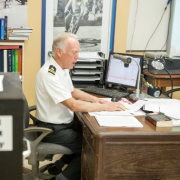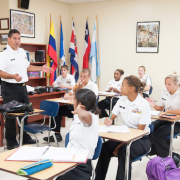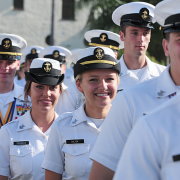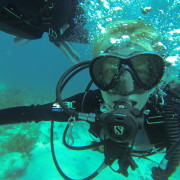Science teacher cage dives with great white sharks
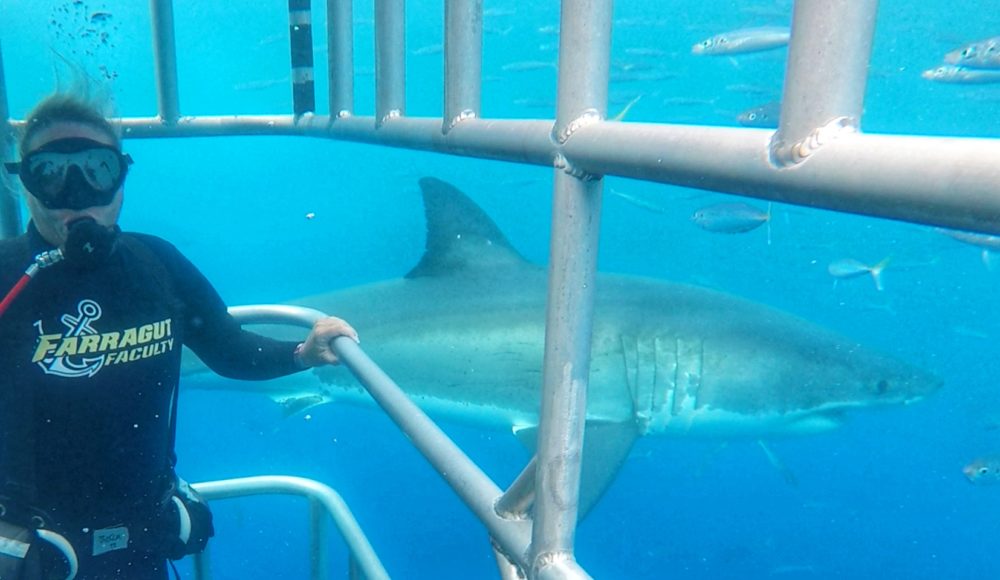
Rebecca Blake checked off a bucket list item when she joined them in their natural habitat
To Rebecca Blake, floating inside a cage surrounded by great white sharks seemed like a fantastic idea. So, she did it.
For five days in August 2019, she and 21 others lived aboard a research vessel moored off Guadalupe Island, Mexico. The opportunity came via nonprofit Sharks4Kids, whose mission is to create the next generation of shark advocates through education, outreach, and adventure.
“It has been a dream of mine since I can remember,” Blake said. “I had no fear, which was crazy, and I was just awestruck to be in the water with them. Their presence is like a gladiator walking into a stadium.”
She learned about the excursion while at SharkCon, a convention for shark enthusiasts. Those who joined her included shark admirers from all walks of life — aquarists, scuba divers, underwater photographers and cinematographers, marine scientists, shark biologists, and more. The 79-foot vessel MV Horizon was home.
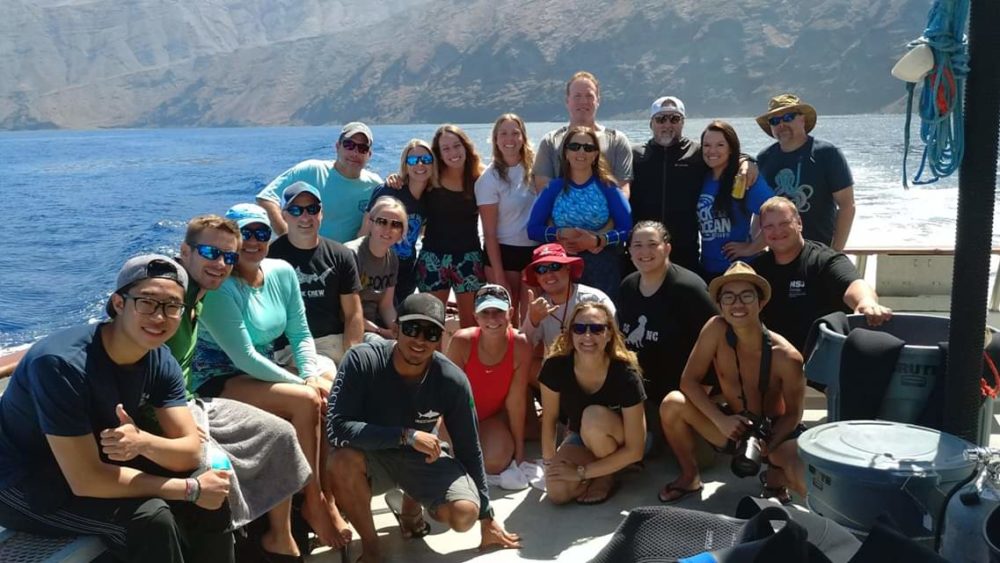
Blake witnessed feeding behaviors during the day and night. She, along with the rest of the group, went in the cages four times a day, each dive lasting about 45 minutes. They would be accompanied by scientists doing tagging and laser measurements of the sharks, along with underwater photographers and cinematographers.
The scientists used chunks of tuna to bring the sharks closer, but Blake said they rarely needed it.
“They do come after the bait, but it’s also almost a sense of curiosity with them,” she said. “They are intelligent animals, and they’re very curious. They want to know about the sounds of the cages and the people in the water.”
The group photo-identified several, recognizing 25 individual sharks over the course of three days.
“The entire experience just showed that they’re not these mindless killers that people portray them to be,” she said. “Great whites are individuals. They have different personalities. They all look different. They all have a variety of markings and their fins are shaped differently.”
In the evenings, after the dives were finished and dinner was done, they would watch presentations by scientists, who would teach them everything from anatomy to predation to behavior interactions, and would present recent studies that they’d worked on.
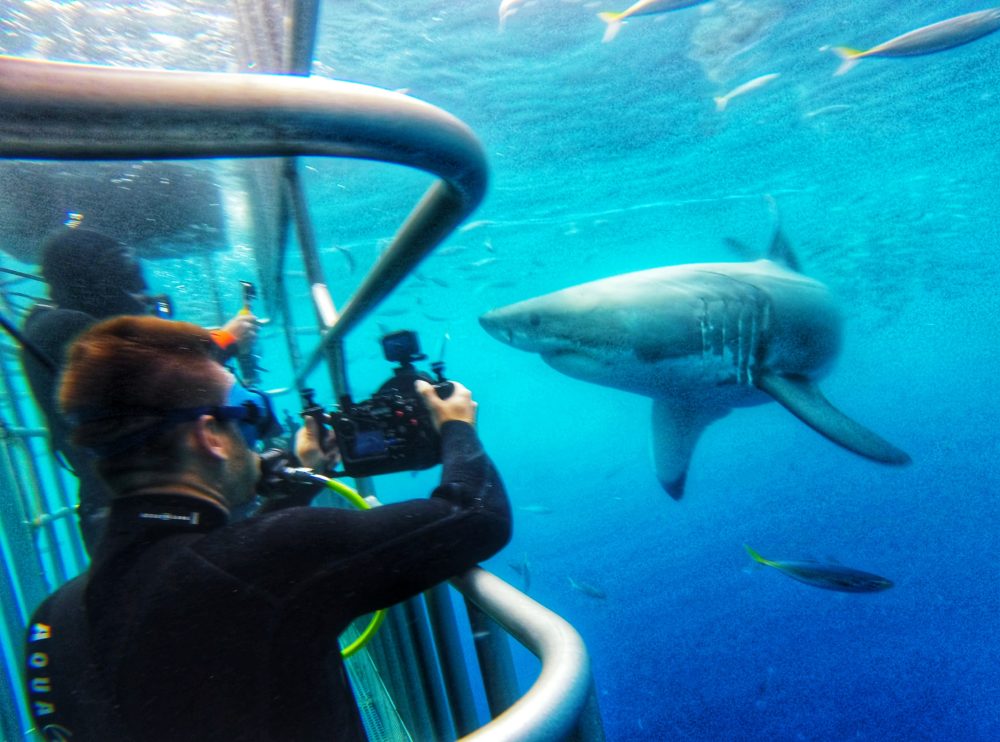
These nights and days with great white sharks and fellow scientists seem to have been inevitable for Blake, whose life has been immersed in the sea.
Her undergraduate career began at the U.S. Naval Academy, where she studied Oceanography and was a recruited swimmer for the Division 1 Women’s Swimming and Diving Team. After two years she transferred to the University of Tampa and completed her undergraduate degree in Marine Science and Biology.
From there, she focused on the marine and animal sciences, working: as a fisheries research biologist; with bottlenose dolphins in California and sea lions in Key Largo; and as a veterinary technician specializing in horses, cattle, farm stock, and then small domestics and exotics.
After getting a master’s degree in Science Education, Blake taught in Maryland before coming to Farragut, where the shark-diving trip has provided material for several lessons in the marine fish/shark unit — behavior, anatomy, and the satellite tagging system.
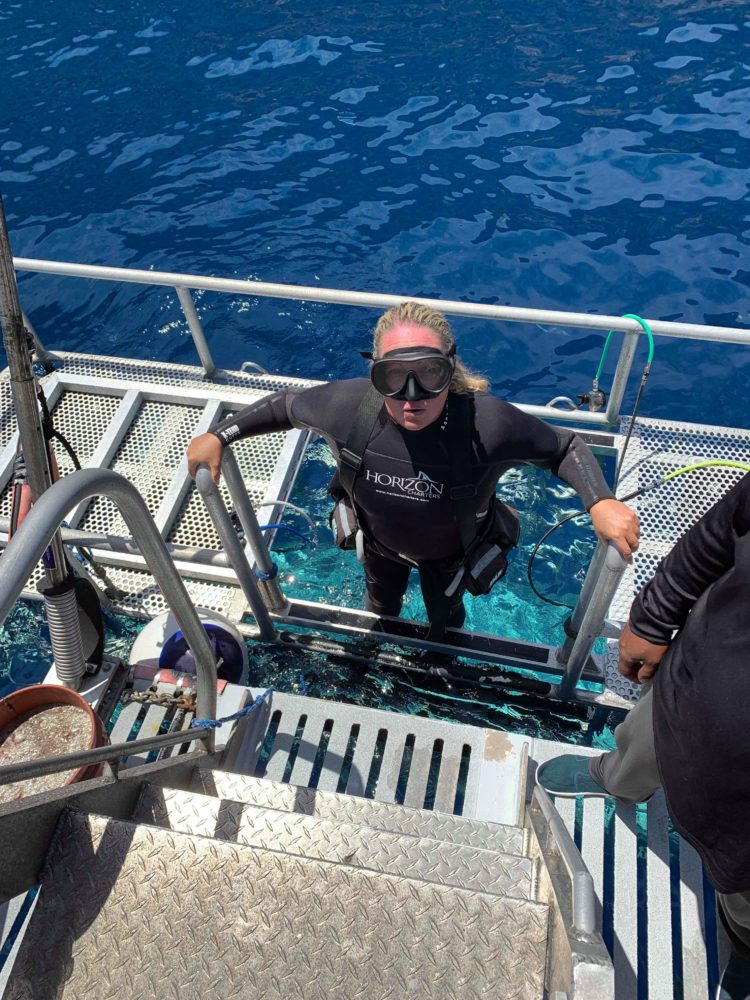
“When I got back, it was all the students wanted to talk about,” she said. “I’m going to take everything I learned and apply it to teaching my kids.”
There’s a good chance she’ll have more such adventures to share with students: “It was quite an experience. I will carry it through a lifetime because it was amazing. And I would do it again tomorrow and the day after that, and the day after that.”

